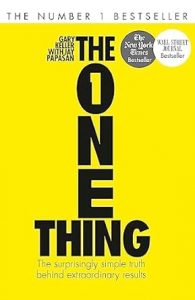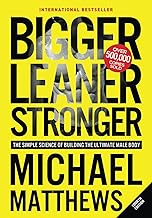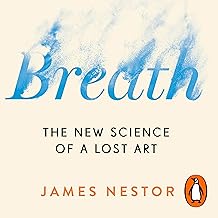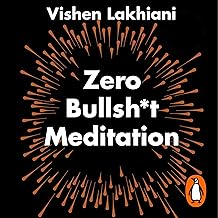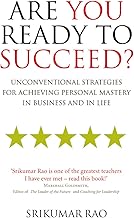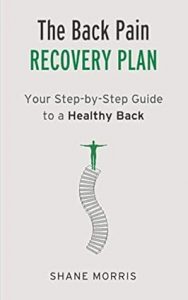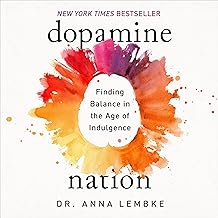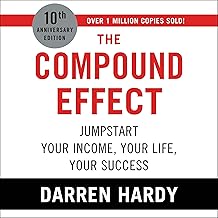In the quest to be healthier, and all the benefits that come with it, there are some great books out there that can truly transform the quality of our lives – if we implement their advice. Below are nine of my most frequently recommended books, covering a wide variety of topics that directly or indirectly can revolutionise your health.
Matthew Walker’s Why We Sleep serves as a passionate call to recognise the importance of sleep in our lives. As someone who has always cherished sleep yet felt guilty about it, I found a refreshing perspective in this book. It underscores that adequate sleep is vital for health, reducing the risks of ailments ranging from Alzheimer’s to cancer and heart disease. Since reading this, I have made a conscious effort to prioritise sleep, without a shred of guilt.
Key Messages:
- Importance of Sleep: Sleep is crucial for overall health, cognitive function, emotional stability, and physical performance.
- Sleep Stages: Different sleep stages, such as REM and deep sleep, are essential for memory consolidation and emotional regulation.
- Health Risks: Chronic sleep deprivation is associated with numerous health issues, including obesity, diabetes, and cardiovascular diseases.
- Cultural Attitudes: Society often undervalues sleep, leading to widespread deprivation with serious consequences.
- Practical Strategies: Walker provides actionable tips for improving sleep quality, such as maintaining a consistent sleep schedule and minimising screen time before bed.
- Mental Health: Quality sleep plays a significant role in mental health, helping to mitigate anxiety and depression.
These insights highlight the critical role of sleep in every aspect of our lives, advocating for its prioritisation.
In The One Thing, Gary Keller emphasises the power of focusing on what truly matters. This book has profoundly influenced how I approach my tasks. Instead of becoming overwhelmed by numerous responsibilities, I learned to identify and concentrate on the single most important task, leading to greater productivity and success.
Key Messages:
- Focus on What Matters: Concentrating on the most important task can drive productivity and success.
- The Focusing Question: Asking, “What’s the one thing I can do such that by doing it everything else will be easier or unnecessary?” helps prioritise efforts.
- Time Blocking: Setting aside specific times for your most important tasks enhances focus and minimises distractions.
- The Domino Effect: Small, consistent actions can lead to significant results over time.
- Work-Life Balance: True balance comes from focusing your time and energy on what matters most.
- Overcoming Obstacles: Managing distractions is crucial to maintaining focus.
These principles encourage readers to streamline their efforts and achieve extraordinary results by honing in on their priorities.
As an example of this newfound focus, I started resistance training last year. Initially, I was overwhelmed by various training methods and spent hours researching. After reading The One Thing, I committed to one program, Bigger Leaner Stronger (see below), and adhered to its advice. This decision not only transformed my physique but also saved me countless hours of unnecessary research.
Bigger Leaner Stronger presents a straightforward, scientifically validated approach to building muscle. It highlights the benefits of increased muscle mass, which contributes to better health and longevity.
Key Messages:
- Simplicity in Fitness: Effective fitness and nutrition need not be complicated; straightforward principles yield significant results.
- Strength Training Importance: Building muscle through strength training is crucial for achieving a lean physique and improving overall health.
- Balanced Nutrition: Proper nutrition is vital for muscle growth and fat loss, focusing on macronutrient balance.
- Consistency Over Perfection: Long-term success relies on consistent effort rather than striving for perfection.
- Mindset Matters: A strong mindset is essential for overcoming challenges in fitness.
- Tailored Approach: Personalised strategies are key, as everyone’s body responds differently.
These messages encourage readers to adopt a practical and sustainable approach to fitness and body transformation.
In Breath, James Nestor explores the vital role of breathing in our physical and mental well-being. As someone who successfully used a breathing retraining program for asthma (Buteyko), I understand the transformative power of proper breathing.
Key Messages:
- Importance of Breath: Proper breathing is fundamental for health, impacting performance and emotional well-being.
- Nasal Breathing: Breathing through the nose offers benefits like improved air filtration and oxygen uptake.
- Breathing Techniques: Techniques such as diaphragmatic breathing can reduce stress and enhance focus.
- Cultural Practices: Various cultures emphasise breath in practices like yoga and meditation.
- Modern Breathing Issues: Many suffer from poor breathing habits due to lifestyle changes, leading to health issues.
- Scientific Insights: Nestor combines personal experiences with research to show how better breathing can yield profound health benefits.
These insights encourage readers to reevaluate their breathing habits and recognise its powerful impact. If you are suffering from asthma or other breathing disorder I would also recommend ‘Close Your Mouth’ by Patrick McKeown.
Vishen Lakhiani’s Zero Bullsht Meditation* presents a practical approach to meditation that emphasises simplicity and effectiveness.
Key Messages:
- Simplicity in Meditation: Effective meditation can be straightforward, leading to substantial benefits.
- Personalisation: Tailoring meditation practices to fit individual needs enhances engagement.
- Focus on Results: Meditation should aim for tangible outcomes, like reduced stress and increased creativity.
- Integration with Daily Life: Incorporating meditation into daily routines improves overall well-being.
- Challenging Traditional Views: Lakhiani encourages questioning conventional practices to find what works best for the individual.
I liked the approach used in this book because it was straightforward and felt enjoyable to do. For instance, one of the six phases, “A Vision for Your Future,” involves visualising your life three years ahead, allowing you to see yourself achieving your goals. It’s simple yet powerful.
Srikumar Rao’s Are You Ready to Succeed? delves into how our mental models shape our experiences. It is beautifully written, filled with sage advice and timeless philosophical concepts but made relevant for modern lives. Having read ‘Are You Ready to Succeed?’ I immediately purchased another book by the author called ‘Modern Wisdom, Ancient Roots’ which is equally impactful.
Key Messages:
- Mindset Over Goals: Success is more about cultivating a positive mindset than achieving specific goals.
- Embracing Uncertainty: Accepting life’s unpredictability can foster resilience.
- Inner Fulfillment: True success comes from understanding one’s purpose rather than external achievements.
- Personal Responsibility: Owning your thoughts empowers you to shape your reality.
- Practice Gratitude: Focusing on gratitude enhances well-being.
- Learning from Setbacks: Viewing challenges as growth opportunities is essential for development.
These insights encourage readers to redefine success and embrace a more holistic life perspective.
Putting my own book may be a bit cheeky but I know the profound impact of back pain on quality of life. In The Back Pain Recovery Plan, I share my insights on creating a clear recovery strategy. I have seen many times over how creating a clear plan, and implementing it, can transform the quality of life for those suffering from back pain, even those who have been suffering for a long time.
Key Messages:
- Holistic Approach: Recovery must address physical, mental, and emotional aspects.
- Personalised Programs: Tailored recovery plans are essential for lasting results.
- Movement is Key: Gentle movements and exercises can strengthen the back and alleviate pain.
- Understanding Pain: Educating oneself about pain empowers control over recovery.
- Lifestyle Factors: Daily habits and routines significantly influence back health.
- Mind-Body Connection: Acknowledging the link between physical and mental well-being is vital.
These principles encourage a proactive and informed approach to managing back pain.
In our modern world we are over stimulated, especially by our phones and social media. This book explores the profound implications this can have for our well being and provides insights on finding more balance and meaning in life
Key Messages:
- Dopamine and Pleasure: The book explains how dopamine is the brain’s chemical associated with pleasure and reward, driving our desires and behaviours.
- Addiction and Overstimulation: Lembke discusses how modern society’s access to instant gratification—through technology, substances, and social media—can lead to overstimulation, addiction, and a depletion of pleasure.
- The Pleasure-Pain Balance: She emphasises the need to maintain a balance between pleasure and pain, suggesting that too much pleasure can lead to pain in the long run.
- The Role of Self-Regulation: The importance of self-regulation and setting boundaries is highlighted, as these are essential for achieving long-term fulfillment and mental health.
- Finding Meaning: Lembke argues that true fulfillment comes from meaningful activities and connections, rather than transient pleasures.
- Recovery and Resilience: The book provides insights into recovery from addiction, emphasizing the importance of understanding one’s relationship with dopamine and making conscious choices.
- Practical Strategies: Lembke offers practical strategies for managing dopamine levels, including digital detoxes, mindfulness, and fostering real-life connections.
These insights encourage readers to harness the power of consistent, small actions to create lasting change.
Darren Hardy’s The Compound Effect illustrates how small, daily choices can lead to significant life changes over time. This concept is especially relevant when it comes to our health. It does not always seem like our daily choices make a big difference but when multiplied across the expanse of time the effects are dramatic.
Key Messages:
- Small Choices Matter: Tiny daily decisions can lead to significant outcomes.
- Consistency is Key: Regularly applying positive habits is essential for long-term success.
- Taking Responsibility: Individuals must own their choices to shape their destinies.
- Tracking Progress: Monitoring habits aids motivation and accountability.
- Patience and Persistence: Success requires time and perseverance.
- Long-Term Vision: A clear vision of long-term goals can guide daily actions.
These insights encourage readers to harness the power of consistent, small actions to create lasting change.
By engaging with these books, we can gain valuable insights and strategies to enhance our health and our lives. Let us know what you think of the recommendations and if there’s anything else that you think should be added to the list, please let us know by emailing leytonosteopaths@gmail.com

